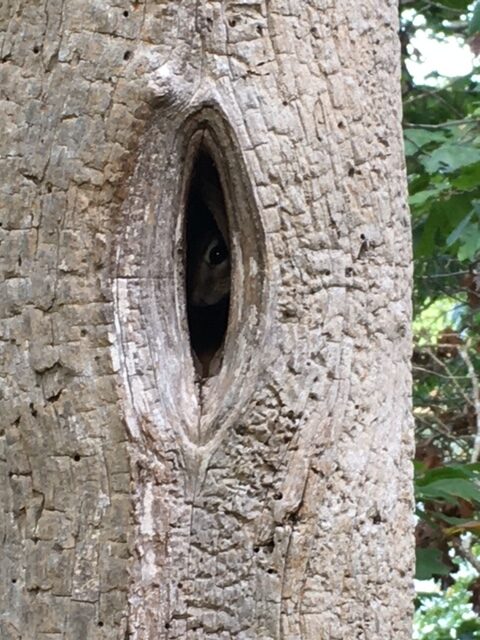This month is a good time to remember what we love about our profession, what brought us into it, and what keeps it fresh and exciting. We brainstorm ways to get the word out and let others know our field exists. We think about ways to advocate for ourselves or our profession into the wider fundraising community.
We might also think about who mentored us, and drop them a note to thank them. Since we’re in the business of fundraising, I don’t think you’ll be surprised to see an appeal to thank your mentor(s) by giving a gift in their honor to the Apra Foundation. Nothing says “thanks for teaching me!” like giving a gift that will pass that forward.
This week I’ve been thinking about a question that I’ve gotten a lot over the years get a lot when I am teaching: What are the characteristics that make a good prospect research professional?
I think most people expect me to say Curiosity and Tenacity and they’d be right – I do think those characteristics are probably the top two. But both of those words mean something different to me now than they did if you’d asked me 20 years ago.
(And yes, they are naturally occurring traits, but they are also traits that you have to develop. More on that in a minute.)
Back when I got started in prospect research I would have meant curiosity and tenacity in a finding-information kind of a way. “A researcher should be curious about a prospect’s life/wealth/background/family/business and not stop researching until everything is found.”
Now I mean the term Curiosity much more broadly.
So, let’s say you’ve asked me to research someone in finance. What do I need to know about the world of finance, about private equity, about the way money flows, in order to be able to evaluate this prospect in front of me? Besides all of the demographics and personal information and family and business history and philanthropy and connections and affiliations and interests and all of that also-important information, how do I help my frontline colleagues understand the issues and timing specific to their situation that this prospect may be concerned with?
But, backing out from a specific individual and considering my impact on our organization’s success generally, there are wider things that I need to be curious about that will help me be a better professional overall.
What do I need to know about how the wealthy live that might impact the way we communicate with them or involve them? Are they in a warmer climate half of the year, or do they ski in Europe in the winter? What do their choices mean about the people they might be friends with? (And are those people that our nonprofit may – or may not – want to be affiliated with?).
What books and publications do I need to read to understand them, and the context of their lives and the work that we’re doing?
By being curious, you will discover gorgeous arcane sources that will help you find an answer at some point in the future. You might explore what’s in a business library’s physical holdings, or discover amazing resources your little town’s library provides online for the cost of your free library card.
You’ll be a better resource yourself.
Tenacity
Tenacity used to mean that I wouldn’t stop until I could find out everything there was to be found (in publicly-held sources, of course) about the prospect I was researching. Which, when you’re starting out, isn’t a bad thing. You need to do that in order to learn what you don’t need to check every time (and what you do).
But now, to me, tenacity doesn’t (necessarily) mean an exhaustive search. It means pulling threads that look… weird to see if I can find more relevant answers. Tenacity means that if you stumble across a piece of information that just doesn’t fit– you can’t let it slide. You really need to check it out.
For example: Maybe you notice that a particular family has houses in upstate New York and Florida and tons of affiliations in both places. But they very randomly belong to a golf club on Long Island. What’s that about? (oh look! A hour of pulling that thread and you discovered a house in trust in the wife’s maiden name where they live in the shoulder seasons).
For another example: Maybe you notice that for 30 years a person donated to a wide variety of nonprofits including yours, but in 2019 they suddenly started giving to only one type of cause. What’s that about, and how might what you learn affect how you approach them to renew?
When you’re curious and tenacious on purpose, you see that researching one person or family or company or foundation can start to mean much much more. You start out your career with gut instincts that become more refined and lead you to better, more informed answers to your colleagues’ questions.
Personally, I think that also makes this most amazing of professions even more interesting. And, in an age when we might worry about ChatGPT or whatever the latest Hal-scape is, our human insight and ability to parse unrelated pieces of information are what continue to prove our impact as partners in fundraising.

